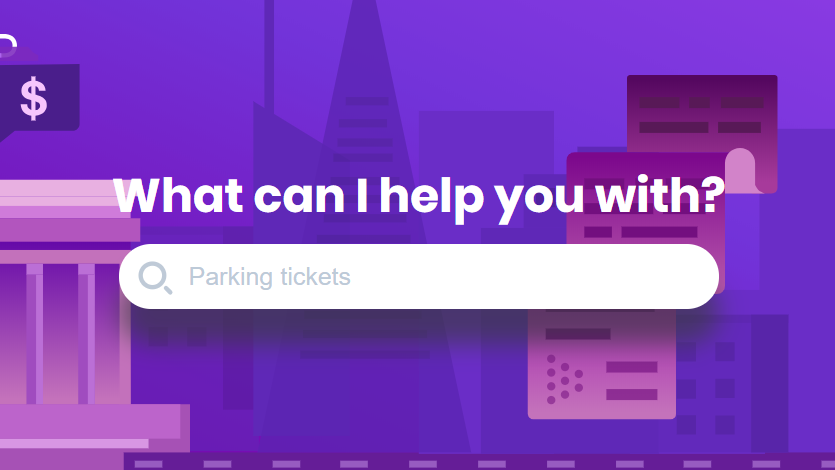DoNotPay, the company that created a chat bot to automatically appeal parking tickets, is today launching a series of legal and consumer-protection bots, in the form of an iOS app, that includes one that will enable individuals to file an action in any small claims court in the United States.
In addition, DoNotPay is announcing that it has acquired Visabot, a service launched shortly after the election of Donald Trump to help individuals obtain visas and green cards. DoNotPay is relaunching Visabot and eliminating all fees for the service, which previously ranged from $110 to $150.
The new small claims bot covers small claims courts in all 3,000 counties in all 50 states. There is no charge to use the product, so users keep 100 percent of anything they recover.
Joshua Browder, the self-taught coder who founded DoNotPay as a 17-year-old in 2015, said the initial idea for this product came from an app he created in the wake of the Equifax breach to help people file small claims lawsuits against the credit rating company.
“Although lots of lawyers said it wasn’t possible, I was shocked when people won $9,000, $10,000 and $11,000 judgments,” Browder said. “Even when Equifax appealed, the average person still prevailed.”
The small claims app works in two main ways. First, if the user has a specific problem, the app guides them through a few questions about their issue, how much they want to sue for (within the limit of the jurisdiction) and where they want to make their case. It then generates all the documents necessary for them to file their matter in the designated small claims court, including a demand letter, court filing documents, and even a script to read in court, as well as instructions for the consumer to follow.
Alternatively, if the user does not want to sue anyone right away, the app can analyze the user’s receipts stored in email and, based on the information it finds, display all the class action lawsuit settlements for which the user is eligible. Like Tinder for lawsuits, the user can then swipe right on lawsuits that interest them or left on those that do not and, for the right swipes, DoNotPay will initiate steps to claim the funds.
Later, Browder plans to expand the class-action component to allow attorneys to use it to identify potential members of a class.
“By providing these services, anyone who can follow simple instructions can now get justice,” Browder told me. “It seems like the only people who are benefitting from human misery are a handful of lawyers. I hope to make it so the average person can access the law for free.”
A Series of Consumer Apps
The small claims app is just one of 14 consumer-aid products that DoNotPay is releasing today. Speaking last week at the Clio Cloud Conference, Browder said that consumers generally turn to the legal system for one of three reasons:
- To fight for money, such as security deposits or damages from accidents.
- To fight corporations, such as over data breaches or defective products.
- To fight bureaucracy, such as over parking tickets, credit reports or immigration matters.
The apps released today are all designed to tackle one or more of these issues. For example, in California, new driver’s license requirements have resulted in waits of three months or more for appointments with the Department of Motor Vehicles. A new DoNotPay bot promises to reduce the wait time from months to days. It does this by booking the initial appointment and then pinging the DMV’s computers 400 times a day until it finds an earlier cancellation.
Others are designed to help consumers:
- Fight unfair bank, credit card and overdraft fees.
- Overturn parking tickets.
- Claim hidden government and class action settlement money.
- Earn refunds from Uber and Lyft when a driver takes a wrong turn.
- Fix errors on your credit report.
- Save money on over 20,000 prescription and over the counter drugs.
- Scan your McDonalds, Jack In The Box, KFC and Carl’s Junior receipts for free fast food.
- Find a California DMV appointment in days rather than months.
- Dispute fraudulent or low quality transactions with your bank.
- Protect your privacy on Facebook, Twitter and Instagram.
- Sue big tech companies for every data breach.
- Make money on your airline and hotel bookings with price protection.
- Track your packages and earn refunds (or free Amazon Prime) for late package deliveries.
“Our goal is for the most simple legal issues to be handled entirely by robots and technology, so the average consumer will never have to know what a lawyer is,” Browder said. “Meanwhile, lawyers will be freed up to handle really important issues.”
 Robert Ambrogi Blog
Robert Ambrogi Blog






